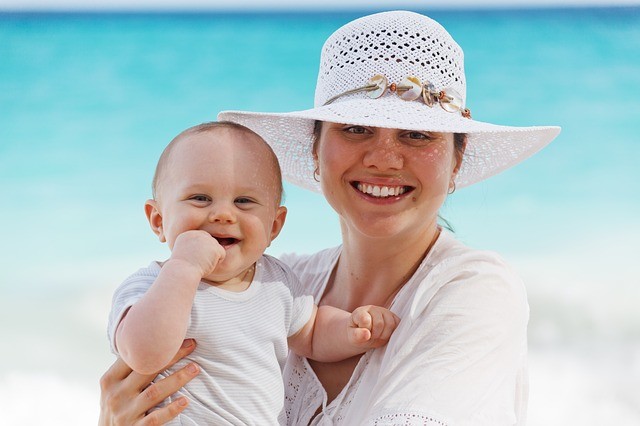Life is stressful at the best of times, but when you are bringing a new life into the world, it’s totally normal to feel a little more worried about things than normal.
Are you eating properly? Are you getting enough sleep? Is he or she moving as he or she should? Are you getting right vitamins? Should you be doing more?
These are all questions that pregnant women ask themselves on a regular basis throughout their pregnancies, and several more questions besides! This is all totally normal, and if you weren’t worried then you wouldn’t care, right? The thing is, there is a line that needs to be drawn, somewhere between normal worry, and over-worry, over-thinking, and too-stressful situations.
It’s normal for emotions to run high during pregnancy, and when hormones are surging around your body, you’re sure to have a few overreactions and perhaps overthink a few things from time to time, but understanding when your body is screaming out for a rest is vital, not only for your health, but for the healthy of your unborn baby.
There are several risks associated with high and prolonged levels of stress and pregnancy, no matter what trimester you are in. For that reason, seeking out help and support if you feel you are struggling is vitally important.
The Dangers of Stress in General
Whether you’re pregnant or not, stress is dangerous. A few of the known effects of stress include:
- A high risk of increased blood pressure
- A higher risk of heart attack, stroke, and diabetes
- Muscle aches and pains, due to tension
- Headaches and migraines
- Disrupted sleep and insomnia
- Increase or loss of appetite
- Becoming socially withdrawn
- A high risk of developing anxiety and depression
- Palpitations
- Panic attacks
As you can see, none of those are pleasant at the best of times, but when you have a baby on board? Everything can seem much worse. During the first trimester in particular, expectant mothers worry about the early stages, e.g. the higher risk of miscarriage and other complications. As the second trimester arrives, this often brings a newer sense of calm, but some women continue to worry, and the high hormone levels can cause stress responses to continue. When the third trimester arrives, worry about delivery can arrive.
How you deal with those stresses is vital, because this is going to be the difference between a healthy pregnancy and an unhealthy one.
The Effects of Stress on Pregnancy
So, we know that stress is dangerous for health and wellbeing, but what about pregnancy and your infant’s development?
Prolonged and high levels of stress can sends more of the stress hormone, cortisol, surging around your body. This is when your body thinks it is in danger, and is called a ‘fight or flight’ response. When you manage to deal with the stress effectively, these hormones calm and reduce; when you can’t deal with it effectively, the levels remain high. This can cause premature birth (before 37 weeks), and that in itself brings a whole host of complications.
High stress levels during pregnancy has also been linked with low birth weight, i.e. 5.5 pounds or lower. This puts your baby under extreme stress to survive, and can mean that they spend the first few weeks of their life in the special care unit of a hospital.
All of this puts your baby at a greater risk of having complicated health problems in the first few months of their life, if not the first few years of their life.
Stress in pregnancy has also been linked to problems with the unborn baby’s brain development. As the baby grows, in the infant years, this can mean behavioural problems. There is more research needed in this regard, as the link and the severity is unclear, but it is thought it is all down to the inflammatory response which your body has to stress. Inflammation has a big effect on pregnancy overall.
Dealing With Stress in Pregnancy
It is totally unrealistic to say ‘don’t stress’ and expect every pregnant woman to adhere to that advice. Stress is a normal part of life, but only to a small degree. When stress becomes too much for someone to deal with, or it has been going on for too long, that is when it becomes dangerous.
During pregnancy, there are a million and one things to think about, and perhaps to worry about, but finding coping mechanisms is vital. This can be anything which works for you as an individual, but a few ideas include:
- Taking a warm bath
- Reading a book
- Watching a film you enjoy
- Getting regular, gentle exercise
- Socialising with friends, or other pregnant women as a support network
- Finding a hobby which takes your mind off things
- Doing something creative
- Walking outside in nature
- Sharing your concerns with your partner/family members/someone you trust
- Try prenatal yoga
- Talk to your doctor or health care professional if you need to check something out, or get reassurance
These are all ways which you can make use of, in order to reduce stress and help you to come to a more even and balanced level between normal worry, and abnormal stress. Your midwife or doctor is there to help you with anything you are worried about, so if you have a concern that is nagging away at you, don’t be afraid to ask. They will have heard it all before no doubt, so you’re certainly not going to shock them! This could be enough to put your mind at rest and allow you to go through the rest of your pregnancy in a more enjoyable and calm way.
Whether the first, second, or third trimester, the responsibility of bringing a new life into the world is a big one, and that comes with worry and stress. Remember, low levels are fine, but high levels are very far from that.
Visit our maternity nurse page for more info and help




